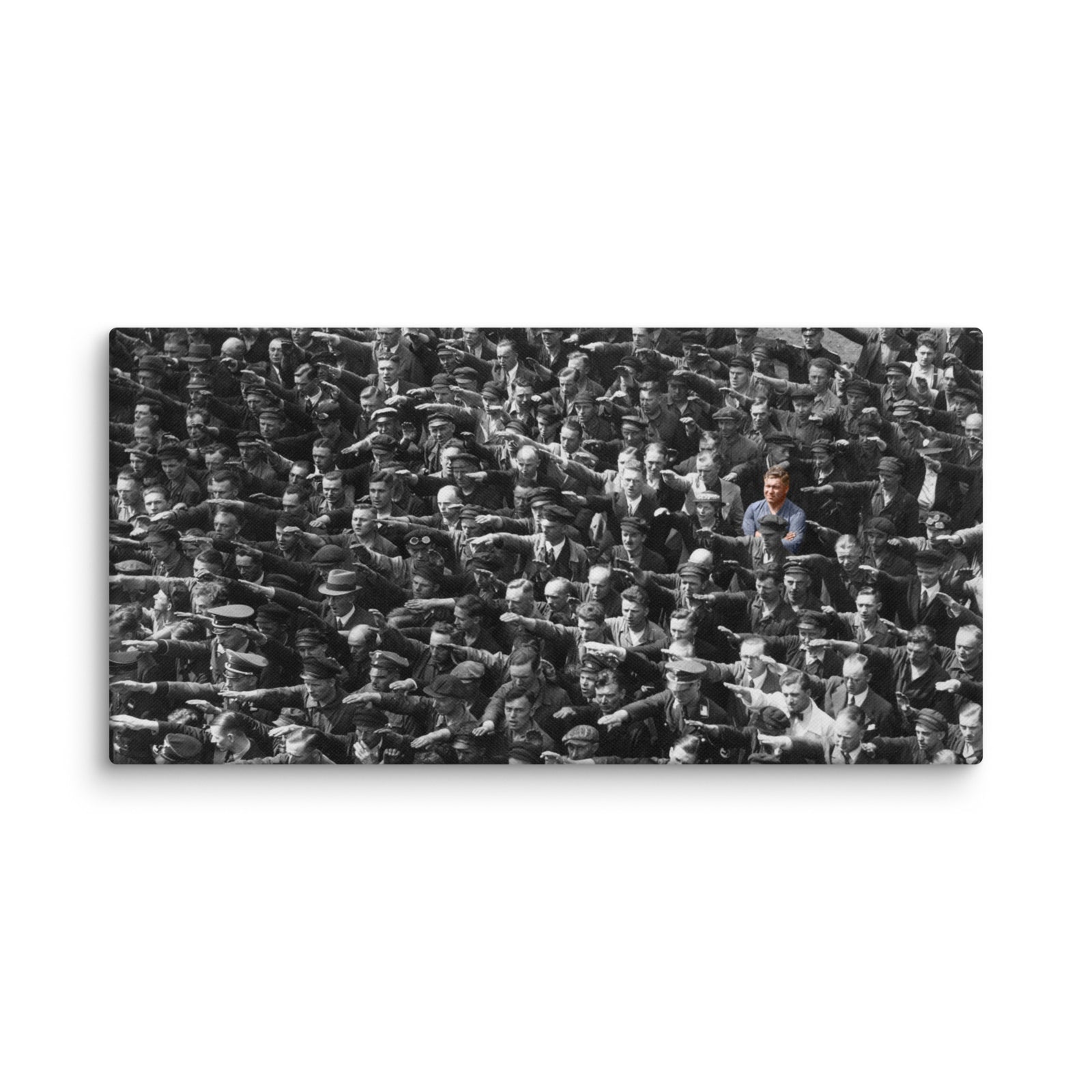

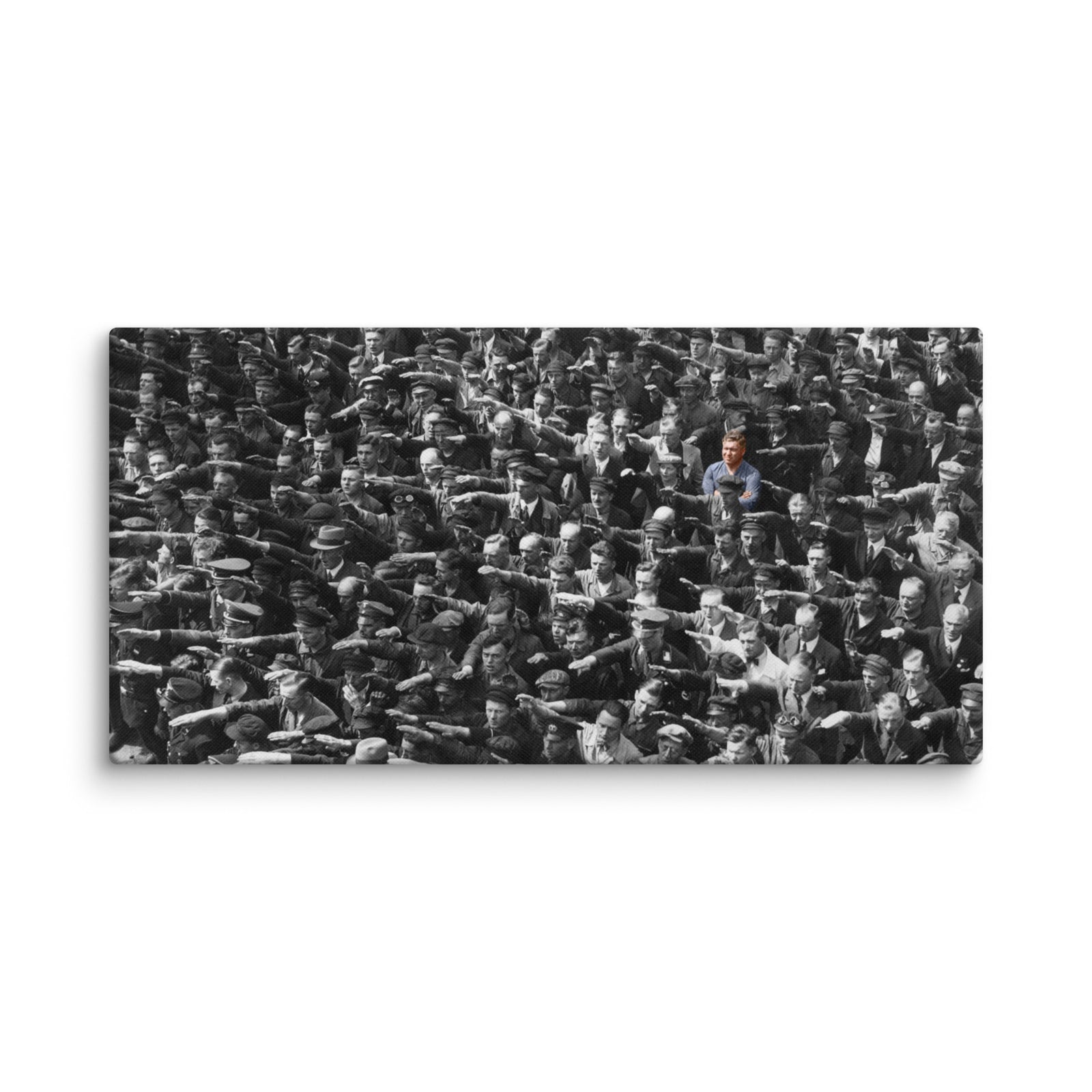
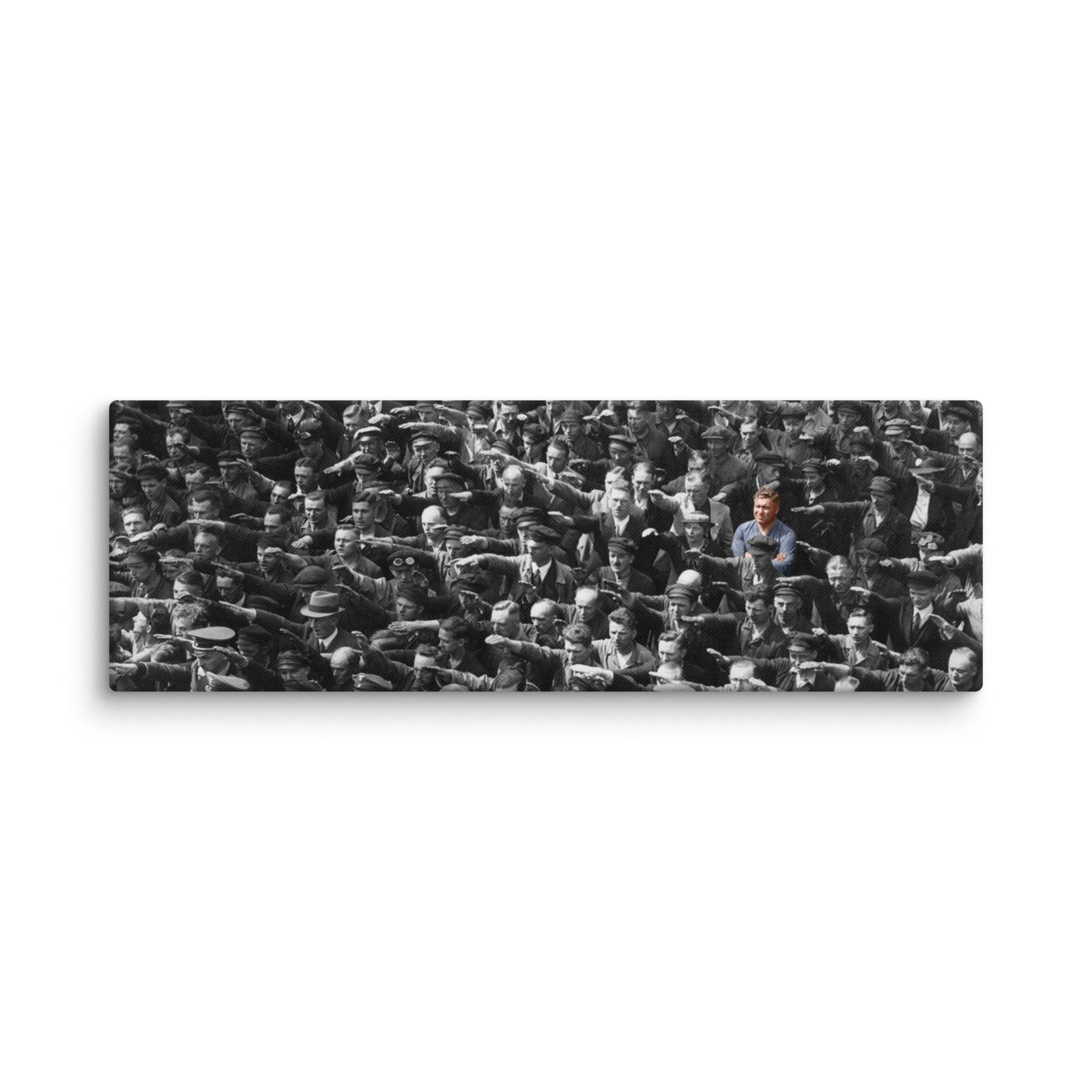
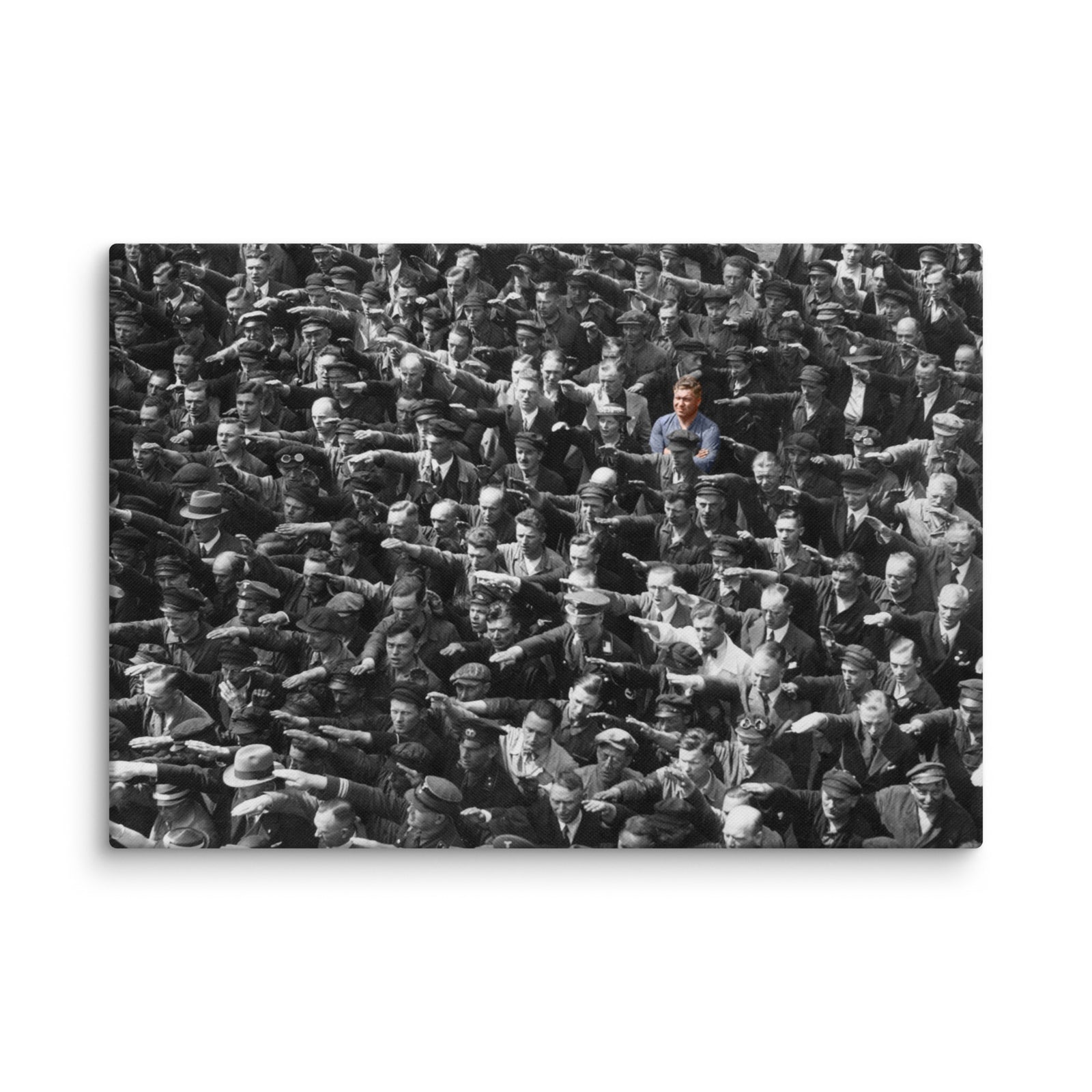

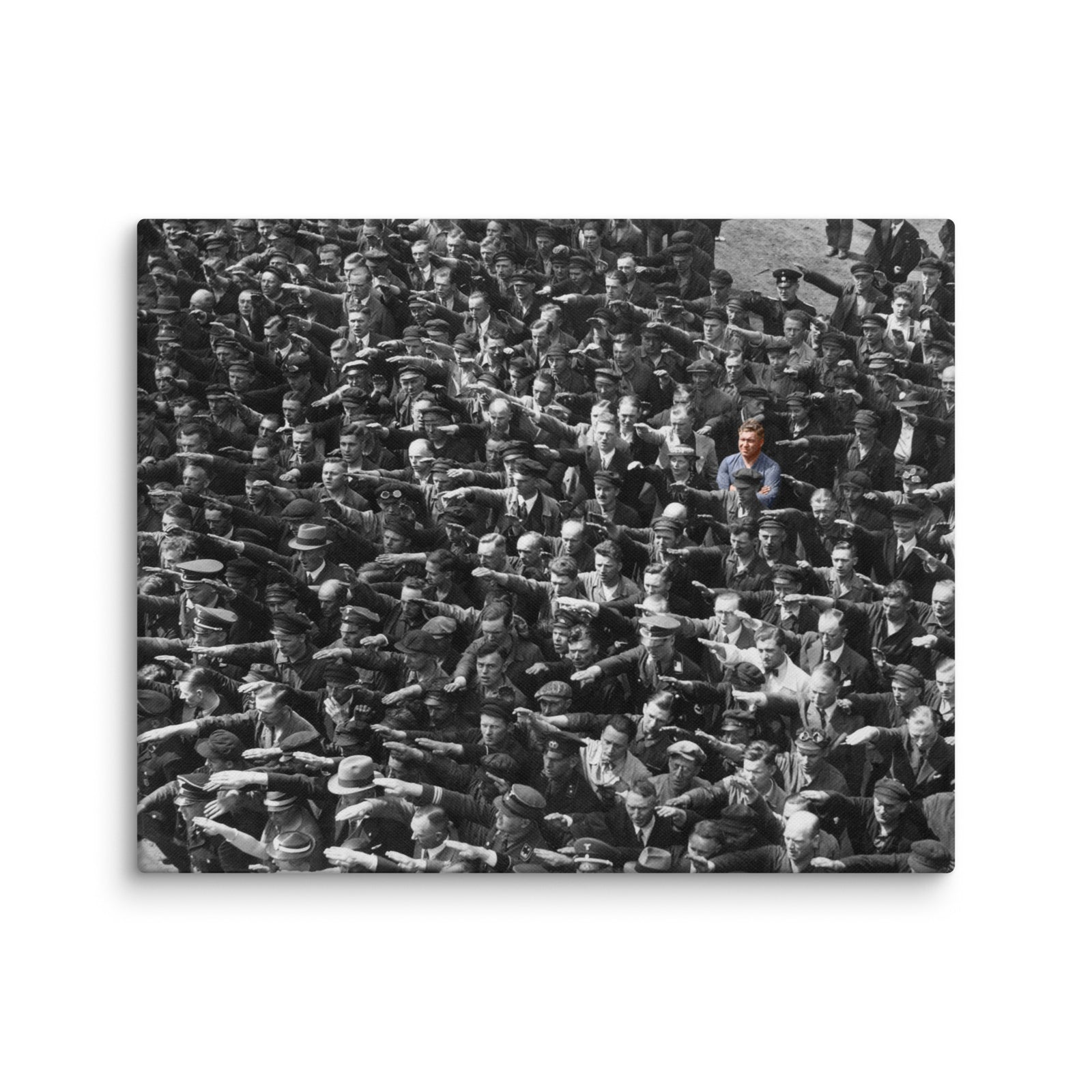
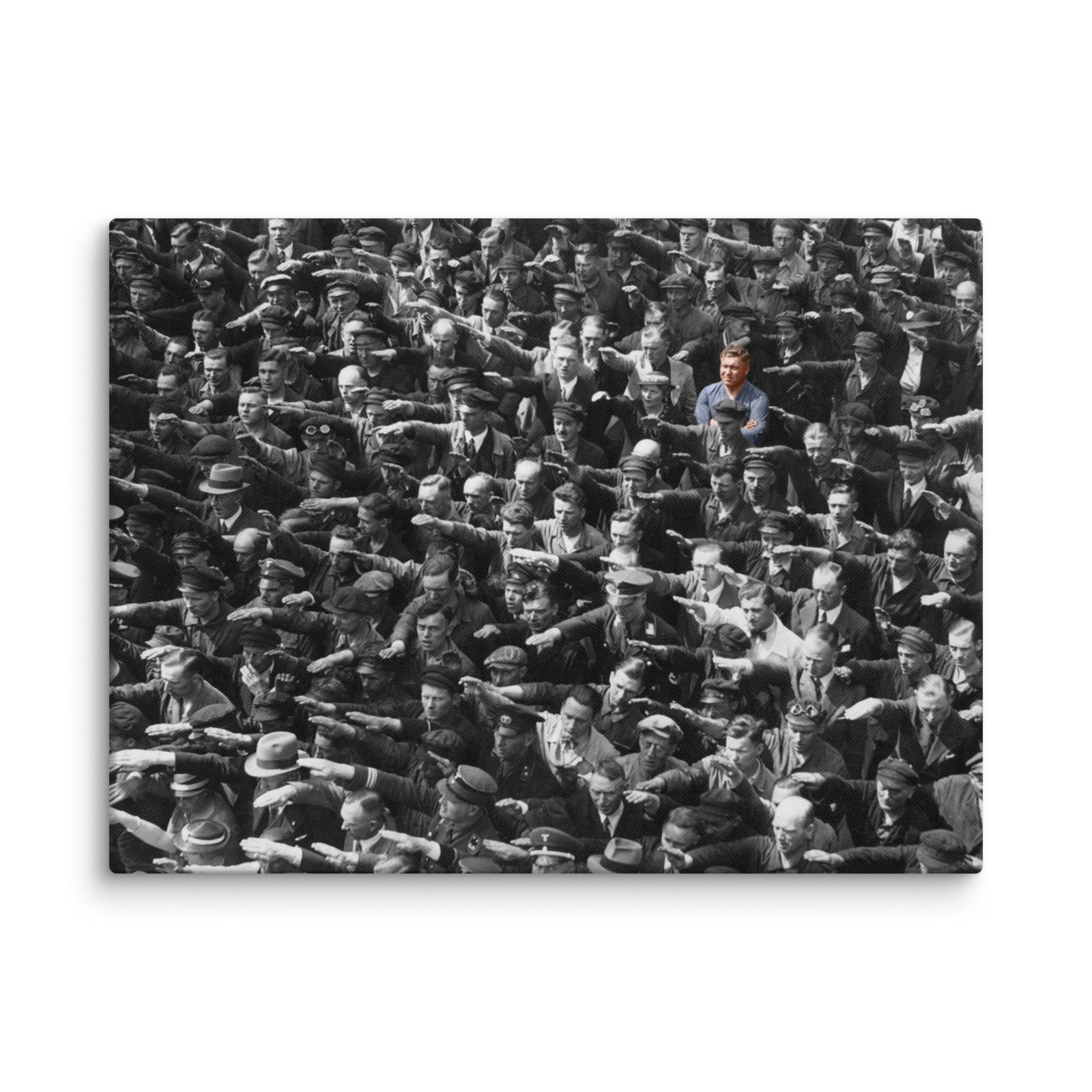
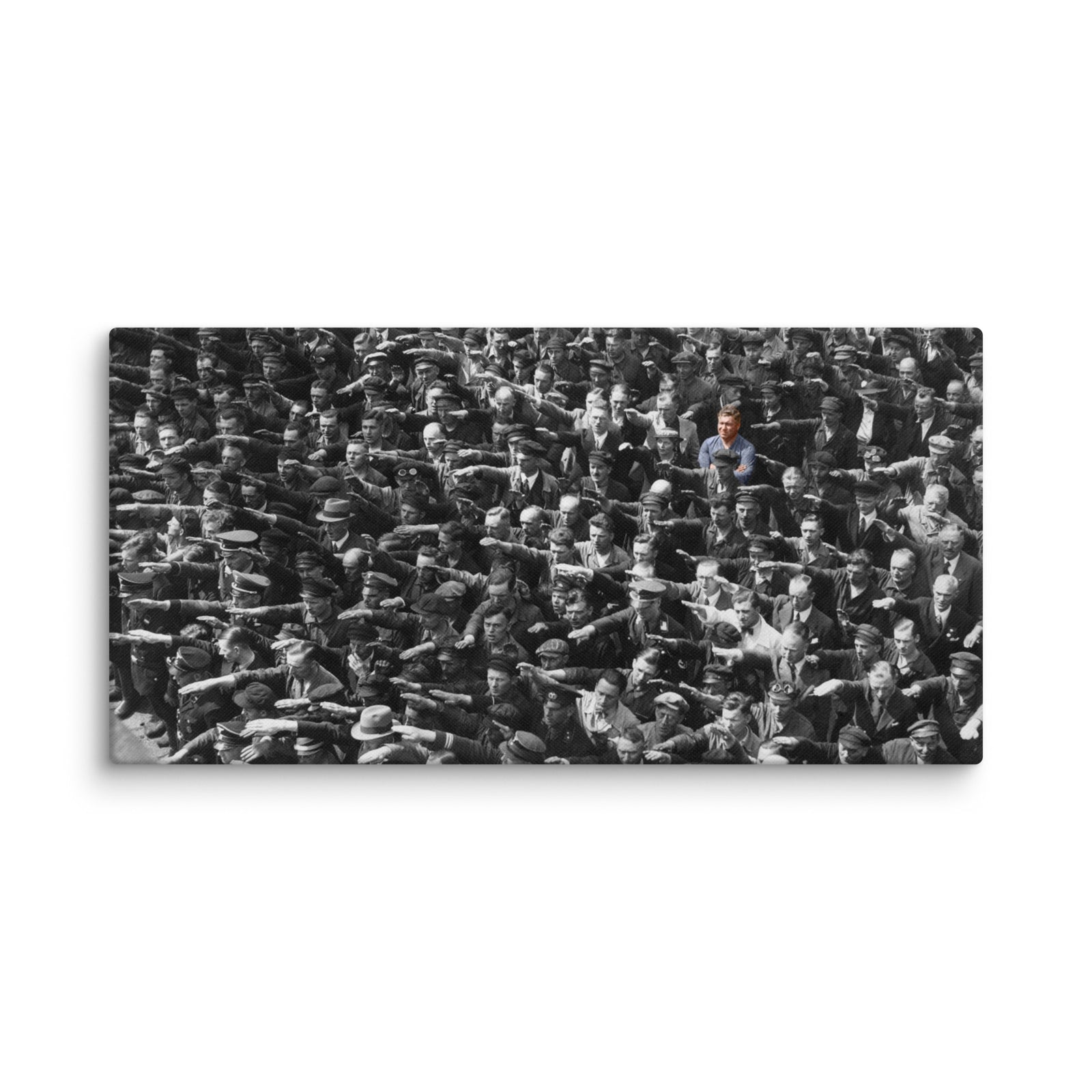
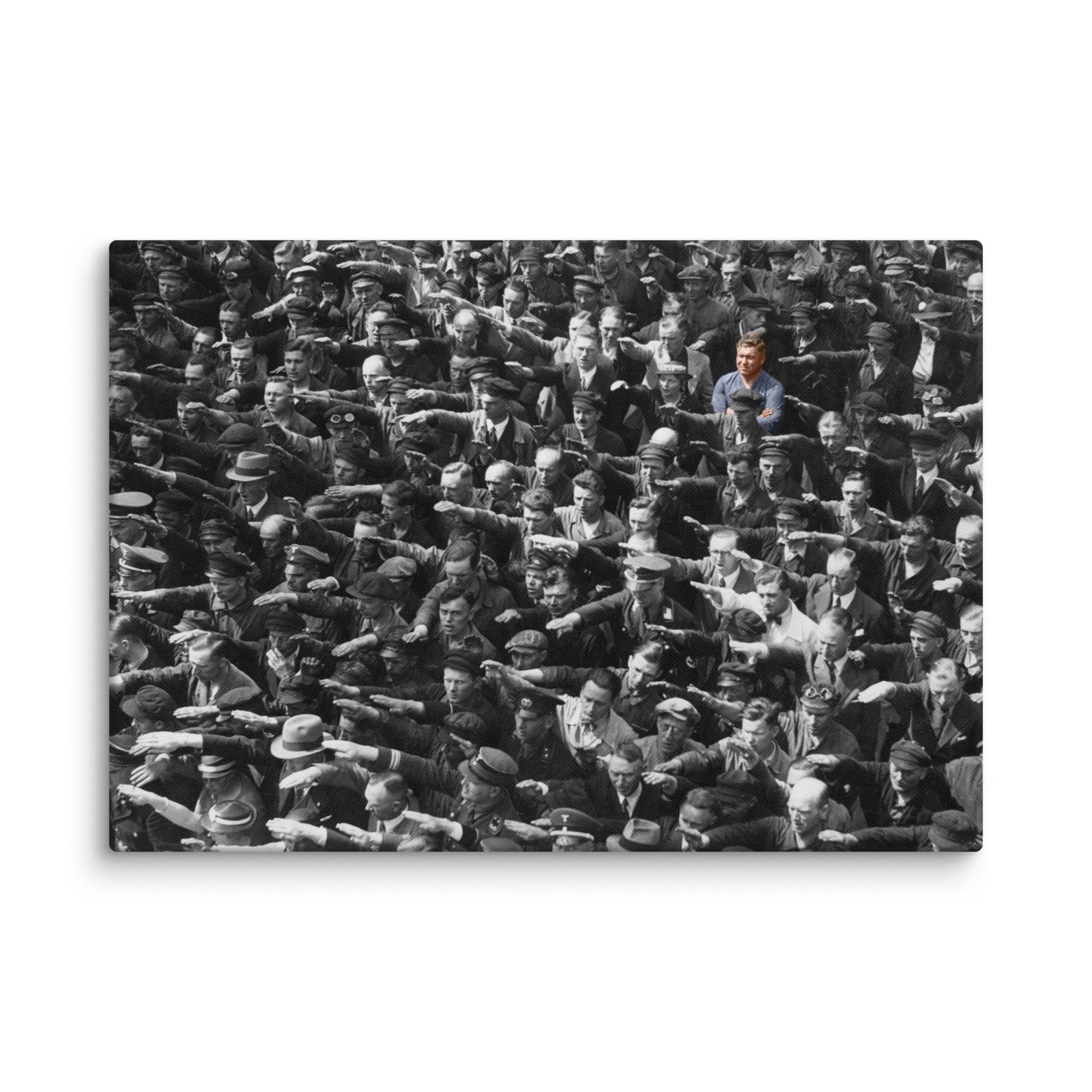
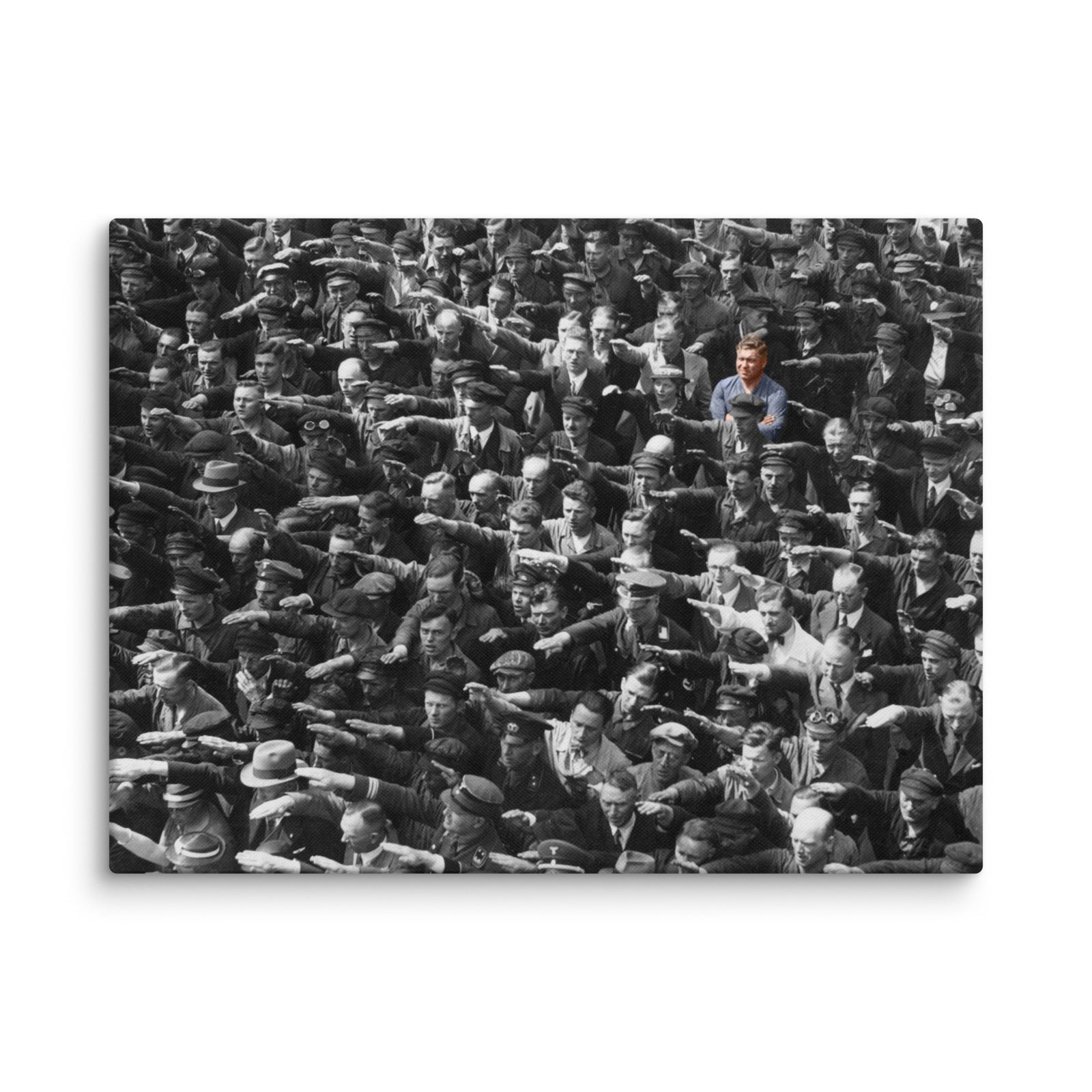
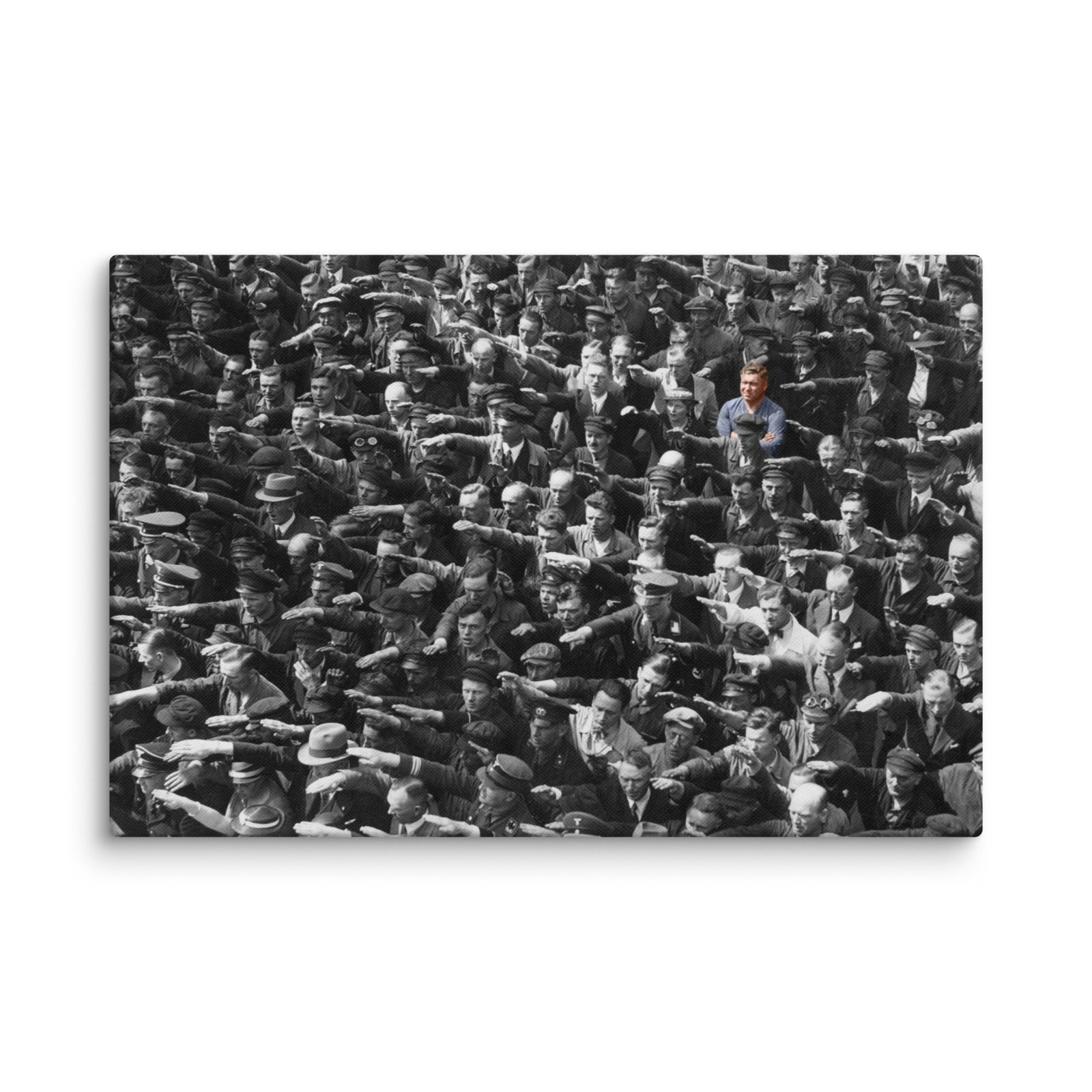
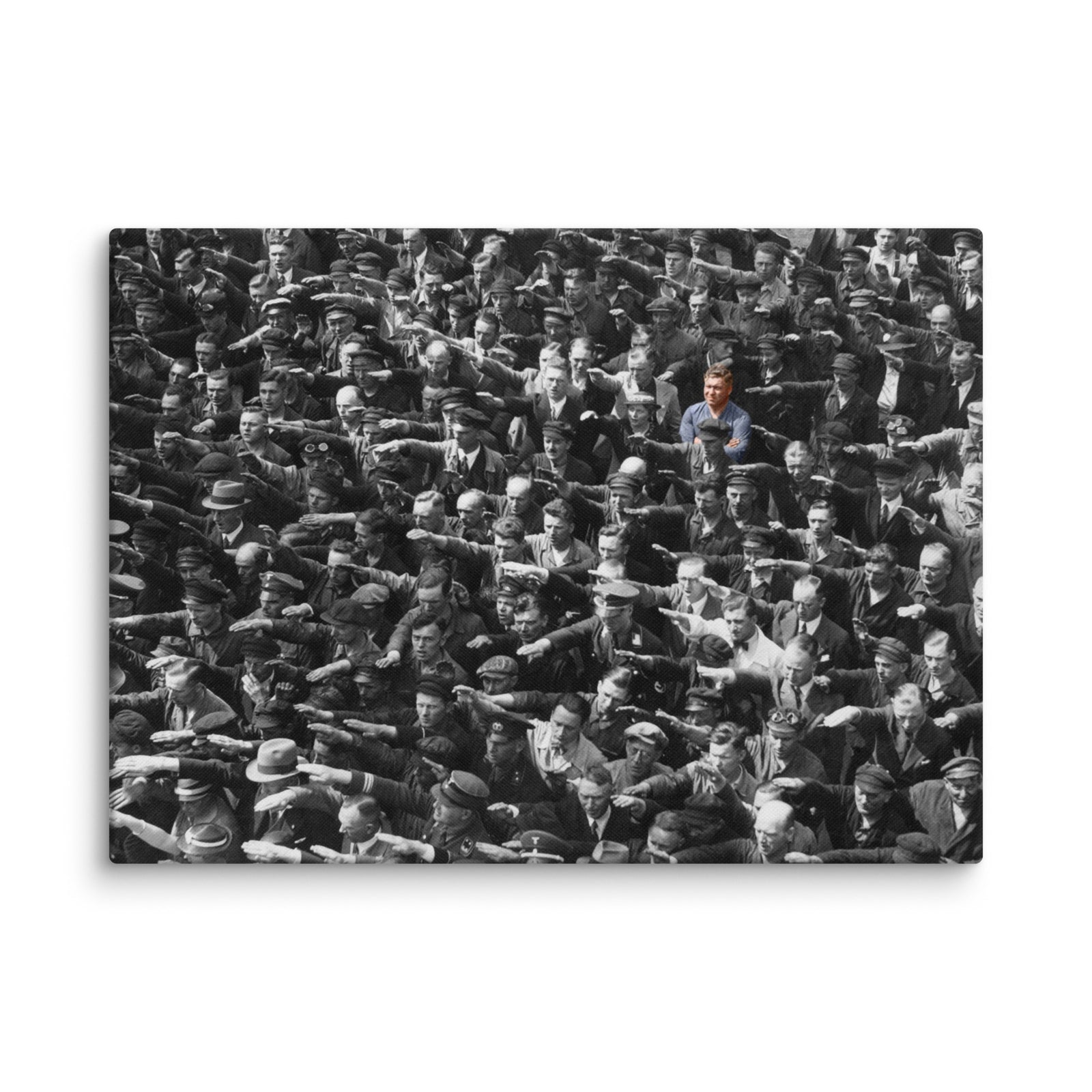
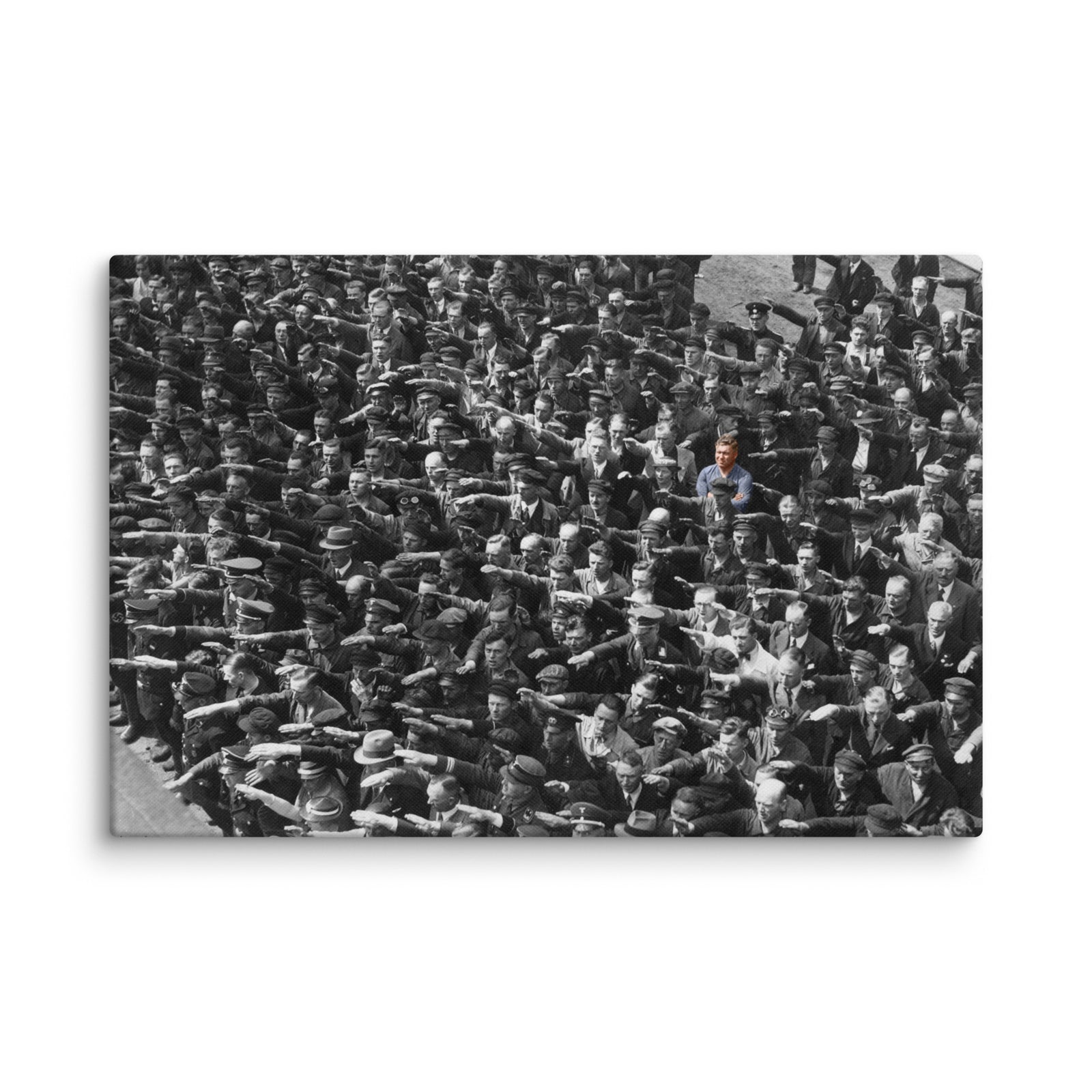
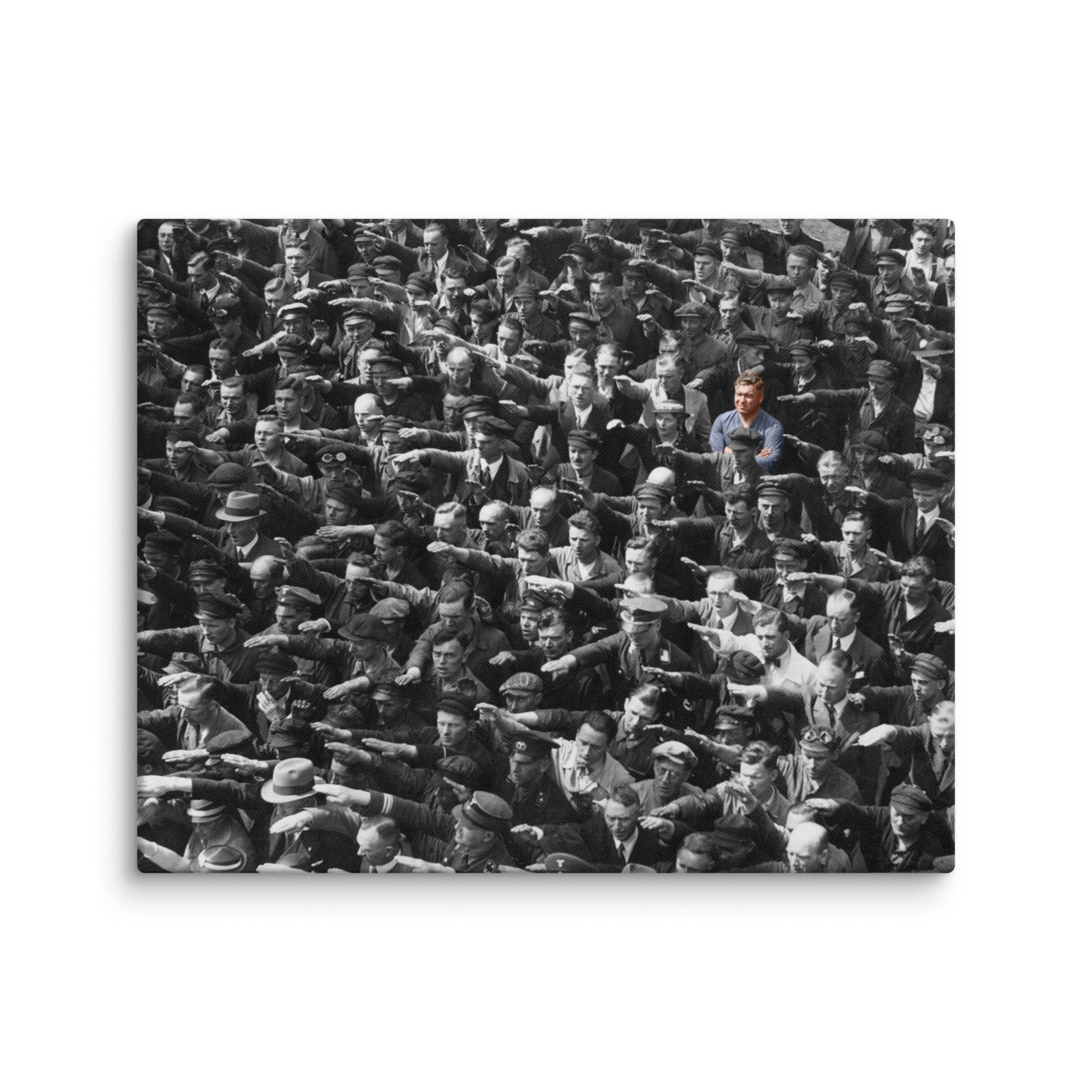
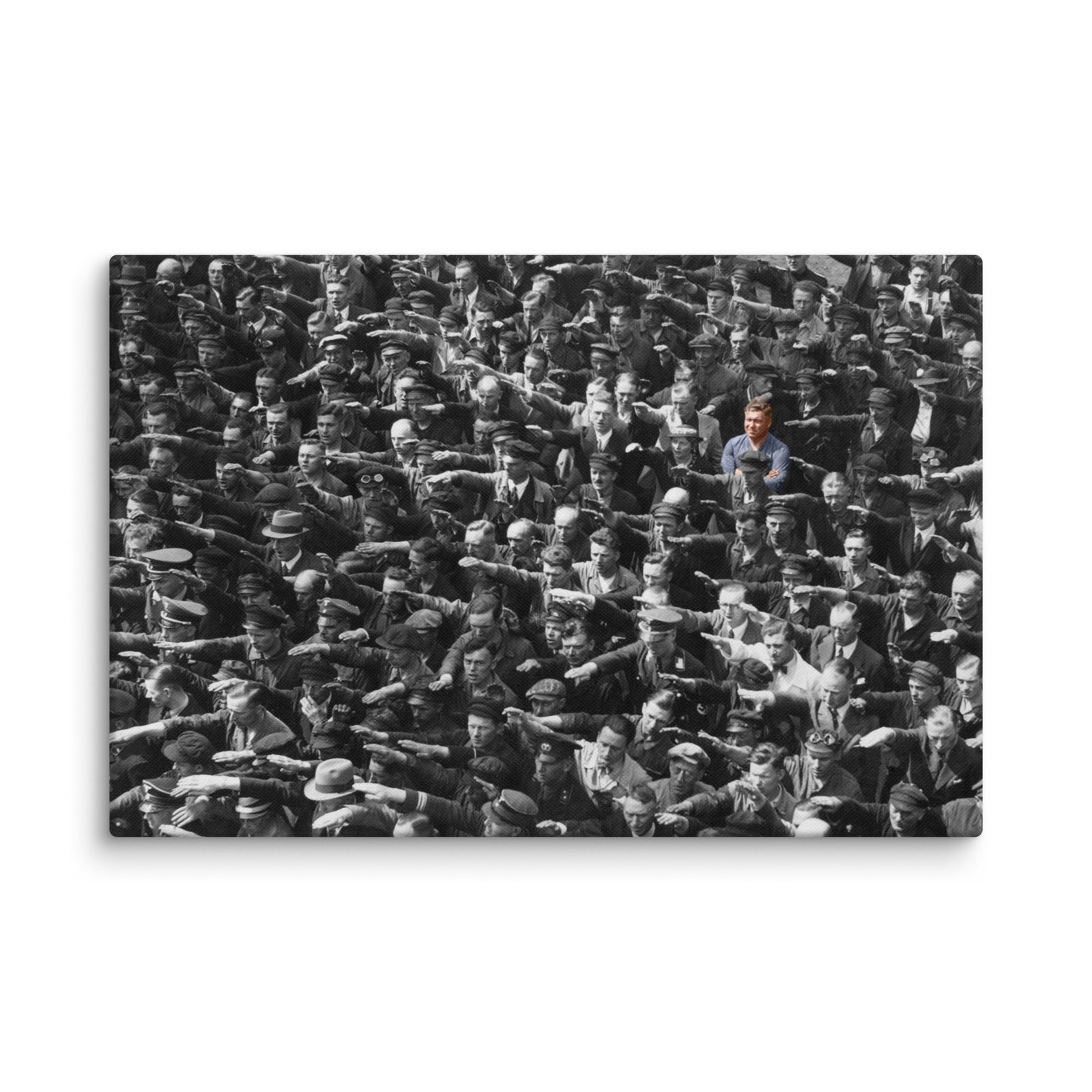
August Landmesser Gallery Wrapped Canvas Wall Art
The 1930s in Germany were years of darkness, where the fascist fervor for Hitler’s regime engulfed the nation. A brutal law demanded that every German raise their arm in the infamous “sieg heil” salute—a gesture of submission to tyranny. Yet in the midst of this oppressive atmosphere, August Landmesser dared to refuse. His refusal wasn’t just an act of defiance; it was an act of love, a declaration that even the might of the Nazi regime could not crush the human spirit.
Landmesser’s story begins in 1931 when he joined the Nazi Party. It was a decision borne not of conviction, but of survival, as joining the Party was almost compulsory in a nation where dissent was silenced with terror. But fate had other plans for August. A few years later, he met Irma Eckler, the woman who would become the love of his life. Irma was Jewish, and in an era where hate was rising like a tidal wave, their love was an act of profound rebellion.
By 1935, August had proposed to Irma, and the couple sought to build a life together. But the shadow of the Nuremberg Laws loomed large, and when their engagement was discovered, August was expelled from the Party. Unbowed, they filed a marriage application in another city, hoping that love might find a way where the law forbade it. But the Nazi regime denied them even this small grace. Still, their love endured, and in October 1935, their daughter Ingrid was born—a testament to their defiance.
It was on June 13th, 1936, during Hitler’s christening of a new German navy vessel, that August made his most famous stand. As the crowd raised their arms in unison, August crossed his own in silent protest. He stood alone in a sea of conformity, his heart with Irma and their 9-month-old daughter at home. In that single gesture, August Landmesser became a symbol of resistance—a reminder that even in the darkest times, one man’s courage can shine like a beacon.
But the forces of evil were relentless. In 1937, after the birth of their second daughter, August and Irma attempted to flee to Denmark. Their escape was thwarted, and the family was captured at the border. August was charged with “Rassenschande,” or “dishonoring the race,” under the Nuremberg Laws. Although acquitted a year later, the regime ordered him to cease all contact with Irma. But love knows no such boundaries, and August defied the order, continuing to see his beloved wife.
For this act of defiance, August was arrested again in 1938 and sentenced to the Börgermoor Penal Camp. It was the last time he would ever see his family.
Irma, pregnant with their third child, was taken by the Gestapo. She was moved from one internment camp to another—Oranienburg, Lichtenburg, and Ravensbrück—enduring the cruelty of the Nazi regime. She gave birth to their daughter Irene in the brutal conditions of prison. In 1942, Irma was transferred to the Bernburg death camp, where she met her end in the gas chambers, one of the countless victims of a regime driven by hate.
Their daughters, Ingrid and Irene, survived the Holocaust, though they were marked by the suffering they endured. Both were placed in orphanages where they faced persecution and abuse. Irene, the youngest, was miraculously saved by a courageous woman just as her orphanage mates were being sent to their deaths. Yet, despite all they endured, the legacy of their parents' love and courage lived on in them.
August Landmesser was conscripted by the Nazis in the final days of the war and was presumed dead in 1945. His story is one of extraordinary defiance, but also of the profound cost that such defiance can exact. He, Irma, and their children should be remembered as martyrs for love, their story a powerful testament to the human spirit’s resilience in the face of unimaginable evil.
This canvas print captures that moment of defiance in vivid, fade-resistant detail, a lasting tribute to August Landmesser’s courage and the enduring power of love.
• 1.25″ (3.18 cm) thick poly-cotton blend canvas
• Canvas fabric weight: 10.15 +/- 0.74 oz./yd.² (344 g/m² +/- 25g/m²)
• Fade-resistant
• Hand-stretched over solid wood stretcher bars
• Mounting brackets included
• Blank product sourced from the US, Canada, Europe, UK, or Australia
Size guide
| HEIGHT (inches) | WIDTH (inches) | |
| 10″×20″ | 10 | 20 |
| 16″×20″ | 16 | 20 |
| 16″×32″ | 16 | 32 |
| 16″×48″ | 16 | 48 |
| 18″×26″ | 18 | 26 |
| 20″×30″ | 20 | 30 |
| 20″×40″ | 20 | 40 |
| 24″×30″ | 24 | 30 |
| 24″×32″ | 24 | 32 |
| 24″×36″ | 24 | 36 |
| 24″×48″ | 24 | 48 |
| 28″×40″ | 28 | 40 |
| 30″×40″ | 30 | 40 |
| 32″×48″ | 32 | 48 |
| 40″×55″ | 40 | 55 |
| 40″×60″ | 40 | 60 |
| HEIGHT (cm) | WIDTH (cm) | |
| 10″×20″ | 25.4 | 50.8 |
| 16″×20″ | 40.6 | 50.8 |
| 16″×32″ | 40.6 | 81.3 |
| 16″×48″ | 40.6 | 122 |
| 18″×26″ | 45.7 | 66 |
| 20″×30″ | 50.8 | 76.2 |
| 20″×40″ | 50.8 | 101.6 |
| 24″×30″ | 61 | 76.2 |
| 24″×32″ | 61 | 81.3 |
| 24″×36″ | 61 | 91.4 |
| 24″×48″ | 61 | 122 |
| 28″×40″ | 71.1 | 101.6 |
| 30″×40″ | 76.2 | 101.6 |
| 32″×48″ | 81.3 | 122 |
| 40″×55″ | 101.6 | 139.7 |
| 40″×60″ | 101.6 | 152.4 |
Collections: Canvas Art, Father's Day, Handmade | Made by Hand by Maniacs, Historical Militaria, Home, Home and Living, New Arrivals, Wall Art | Prints, Canvases, Flags, Signs, and Metal Art
Type: Canvas Wall Art
Category: anti-fascist wall art, anti-nazi art, August Landmesser, august landmesser canvas art, august landmesser defiance print, canvas, definace, dissent, forbidden love, gallery wrap, germany, holocaust remembrance, holocaust survivor story, man refusing to salute, nazi defiance, nuremberg laws, salute, wall art, world war ii art, ww2























